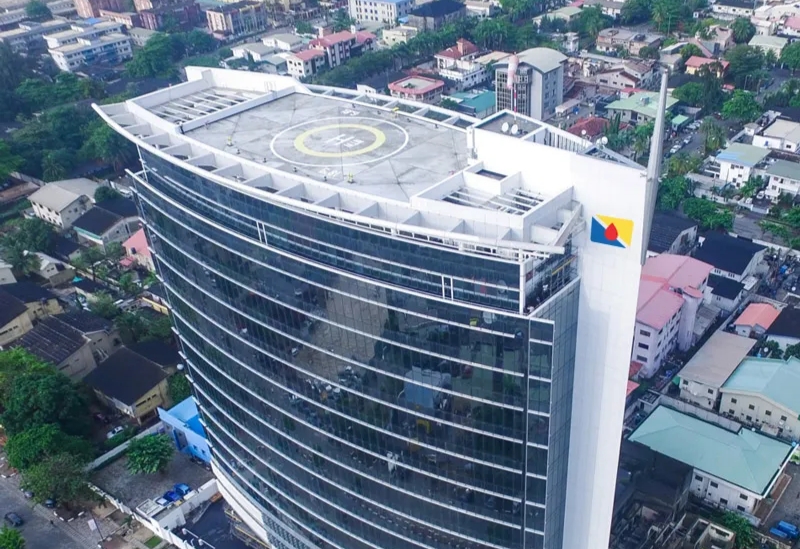•BudgIT Report: states’ combined revenues rose to N17.17tn in 2024, from N8.66tn in 2023, FAAC transfers N11.38tn from N5.4tn
•31 states relied on federal transfers for 80% of recurrent revenue, domestic, foreign debt fell by N2 trillion, $200 million respectively
•Enugu leads IGR growth, likely to survive without recourse to federal allocation
•States eye N4tn from VAT revenues in 2026 as Lagos, Ogun, Kwara, Anambra, Edo continue to stand out for relative resilience
•CBN Deputy Governor: market normalisation, policy credibility attracting capital back into economy
James Emejo in Abuja
Chairman, Presidential Fiscal Policy and Tax Reforms Committee (PFPTRC), Mr. Taiwo Oyedele, yesterday, declared that despite current fiscal expansion resulting from recent economic reforms, poverty remained prevalent in the country.
Oyedele said though the current boost in revenue inflows to states had been unprecedented, sub-national governments had not been able to significantly impact living standards of ordinary Nigerians.
He spoke in Abuja at the launch of the BudgIT’s 2025 State of States Report, with the theme, “A Decade of Subnational Fiscal Analysis: Growth, Decline and Middling Performance.”
Oyedele also hinted that with VAT reforms kicking in, from 2026, states’ share will rise to 55 per cent or about N4 trillion in 2026.
He said, “States receiving more money than ever before. But there is a paradox: while governments have more naira, ordinary Nigerians have less disposable income in their pockets.”
Oyedele said, “It is a sobering reminder that fiscal abundance does not automatically translate into social prosperity. We must be intentional in translating positive macro results into meaningful micro-outcomes for the people.”
The report revealed that the combined revenue of all 35 states increased significantly by 31.2 per cent to N17.17 trillion in 2024, from N8.66 trillion in 2023.
Lagos earned N2.24 trillion, representing 13.04 per cent of cumulative revenue of states in 2024, while gross FAAC collections grew by 110.74 per cent to N11.38 trillion in 2024, compared to N5.4 trillion in 2023, accounting for 66 per cent of year-on-year growth of their combined revenue.
In addition, FAAC allocations comprised at least 60 per cent of the recurrent revenue of 30 states, excluding Lagos, Ogun and Enugu, while 31 states relied on federal transfers for at least 80 per cent of their recurrent revenue.
Similarly, 29 states relied on FAAC receipts for at least 50 per cent of their total revenue, while 21 states depended on FAAC receipts for at least 70 per cent of their total revenue, according to BudgIT.
“In other words, FAAC dependency has deepened,” Oyedele said.
Further analysing the report, the presidential tax reform committee chairman, however, acknowledged some areas of states improvement in fiscal operation.
According to him, Enugu grew its Internally Generated Revenue (IGR) by 381 per cent, Bayelsa by 174 per cent, Abia by 129 per cent while Lagos, Ogun, Kwara, Anambra, and Edo continued to stand out for relative resilience.
The report stated that these states had been able to significantly grow their internally generated revenue year-on-year and were progressively reducing their over-reliance on federal transfers.
Oyedele stated, “The real test of progress is whether states can turn the current revenue windfalls into sustainable fiscal space and utilise their resources judiciously to deliver shared prosperity.
“The new tax reform laws provide a unique opportunity for states with increased allocation from the VAT pool, full assignment of electronic money transfer levy to states, and tax exemptions for state government bonds to lower borrowing costs, and measures to build capacity and close existing tax gaps.”
Citing the report, he said, “Expenditure rose sharply last year, almost N16 trillion. Encouragingly, for the first time in many years, capital expenditure outpaced recurrent expenditure.
“But when we dig deeper, a curious picture emerges. States implemented only two-thirds of their education budgets, spending less than N7,000 per citizen. In health, implementation was even lower at 62 per cent amounting to just N3,500 per citizen.
“This is the uncomfortable truth: too many states are still prioritising recurrent expenditure and uncontrolled overheads over classrooms and clinics. But no society can prosper if its people are unhealthy and unskilled.”
On debt, Oyedele said, “There are reasons for optimism. Domestic debt fell by N2 trillion; foreign debt by $200 million. 31 states actually reduced their domestic debt stock. That is fiscal discipline worth celebrating.
“But challenges remain. Lagos and Edo still carry debt burdens of over N100,000 per citizen. And across the federation, states owe over N1.2 trillion in arrears to pensioners, contractors, and workers.
“Let us be clear: borrowing is not the problem. Unproductive application of debt is. Borrowing is desirable when it creates infrastructures, jobs, and opportunities.”
The report further stated that states’ aggregate IGR grew by 52.52 per cent to N3.02 trillion, from N1.92 trillion in 2023.
Fifteen states grew their IGR by more than 50 per cent, with Enugu recording the highest growth of 381.44 per cent, while only two states recorded negative IGR growth, with
Kebbi recording the worst decline among the entire states.
Tax revenue accounted for 66.58 per cent of cumulative IGR of the states, while non-tax revenue accounted for 33.42 per cent.
States’ cumulative expenditure increased by 64.69 per cent to N15.63 trillion in 2024, from N9.49 trillion in 2022, while aggregate operating expenses, which formed 41.96 per cent of the aggregate expenditure, increased by 48.13 per cent to N6.62 trillion, from N4.64 trillion in 2023.
In addition, the report stated that the combined IGR of Lagos N1.26 trillion and Ogun N194.93 billion, represented the IGR of 24 states combined.
About 10 states, including Borno, Ogun, Nasarawa, Ekiti, Enugu, Zamfara, Bayelsa, Bauchi, Osun and Niger, had above 500 per cent growth in their IGR between 2015 and 2024.
States’ foreign debt also increased by 1.66 per cent to $4.58 billion in 2024, from $4.50 billion in 2023.
Kaduna, Jigawa and Ondo had the highest foreign debt-to-total debt ratios, at 97.39 per cent, 96.42 per cent, and 90.04 per cent, respectively.
Average subnational debt per capita moved to N41,766, from N40,469 in 2023.
On the way forward, Oyedele said, “First, we need to rethink our fiscal federalism and deepen revenue reform. States must harmonise taxes and how revenue is administered, digitise collection, and invest in the informal economy – not seeking to extract tax from vulnerable citizens.
“States should enact tax harmonisation laws, stop taxing capital and investment, such as excessive Right of Way (RoW), business permits, etc.
“It is time to shift decisively from spending to investment, especially in education and health. Develop a spending framework and budget reforms that compel the right behaviour in public financial management. Also drive better accountability especially at LGs level.
“Third, debt strategy. Borrow less for recurrent spending, borrow responsibly for infrastructure and productivity. We need to adopt a positive net financial position as our debt strategy. Should a state borrow to build an airport or farm access roads etc?
“Finally, there are opportunities. With VAT reforms kicking in from 2026, states’ share will rise to 55 per cent.
That could amount to over ₦4 trillion in 2026. The question is: will this money be spent, or will it be invested?”
Oyedele added, “Nigeria cannot afford another decade of middling performance. The time has come for states to rise above mere survival or simply getting by, to investing in their people, and to create prosperity that is both shared and sustainable.”
In his remarks, CBN Deputy Governor, Economic Policy, Dr. Muhammad Abdullahi, said market normalisation and policy credibility were attracting capital back into the Nigerian economy.
Abdullahi said total capital importation was rising, adding that market-driven autonomous inflows are increasing, signalling a structural shift towards a more sustainable external position.
He said at 62 per cent, year-on-year rise in capital importation demonstrated revived investor appetite following FX unification and backing clearance.
The CBN deputy governor stressed that the apex bank had continued to pursue price stability to preserve the real value of revenues, ensuring that fiscal windfalls translate into real services.
Among other recommendations to strengthen the fiscal policy framework, Abdullahi urged states to complete 100 per cent TSA to close leakages and improve cash management.
He added that states should rather broaden revenue base, than hike rates, and harmonise state/local taxes to reduce friction for SMES.
He said states should seek prudent debt strategy, and plan within medium-term anchors to avoid rollover stress, stating that their foreign debt shares exceed 80 per cent of total debt.
Abdullahi said, “Windfalls become dividends only through discipline, transparency, and human-capital investment.”
BudgIT’s Global Director, Oluseun Onigbinde, said the report reflected the “choices state governments are making, the paths they are taking, and the opportunities they are either seizing or leaving on the table”.
Onigbinde said, “This report began with a simple belief. That every kobo meant for citizens should be traceable, justified, and used to improve lives. We have seen remarkable improvements since we first started this journey. From the days when only five states published budgets to today, where transparency has become a competitive advantage.”
Onigbinde said, “Governors now wait eagerly — sometimes nervously — to see where they stand. Citizens have stronger voices.
“Data has become a lever for accountability. We celebrate that progress sincerely. We did not start by seeking to build transparency in subnational governments; we want to be clear that they had a strong fiscal base. As the title of this report reflects, we have gone through phases of growth, decline, and middling performance.”
He added, “The State of States is not BudgIT’s report alone. It is a public resource. A call to action. A roadmap for reform. A reminder that Nigeria’s future is not shaped only in Abuja. The engine of national prosperity must fire in Kano, Enugu, Bauchi, Oyo, Rivers, Sokoto, and across every corner of this federation.”



